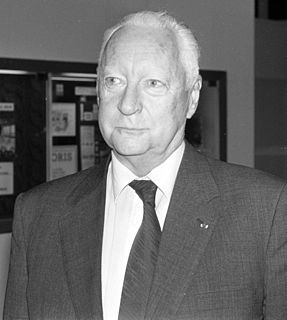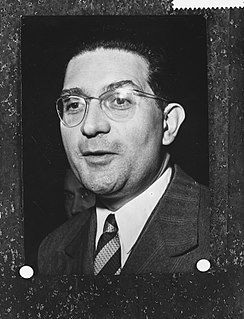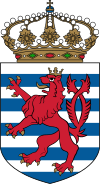
The Concertación was a coalition of center-left political parties in Chile, founded in 1988. Presidential candidates under its banner won every election from when military rule ended in 1990 until the conservative candidate Sebastián Piñera won the Chilean presidential election in 2010. In 2013 it was replaced by New Majority coalition.

The Radical Party of the Left is a social-liberal political party in France. A party in the Radical tradition, since 1972 the PRG was a close ally of the major party of the centre-left in France, the Socialist Party. After the 2017 presidential and legislative elections, negotiations to merge the PRG with the Radical Party began and the refounding congress to reunite the parties into the Radical Movement was held on 9 and 10 December 2017. However, a faction of ex-PRG members, including its last president Sylvia Pinel, split from the Radical Movement in February 2019 due to its expected alliance with La République En Marche in the European elections and plans to resurrect the PRG.

The Italian Democratic Socialists were a social-democratic political party in Italy. The party was the direct continuation of the Italian Socialists, the legal successor of the historical Italian Socialist Party. Also the Italian Democratic Socialist Party, the other long-time Italian social-democratic party, was merged into it.

The Pacifist Socialist Party was a left-wing Dutch socialist political party. The PSP played a small role in Dutch politics. It is one of the predecessors of the GreenLeft.
The Cartel of the Left was the name of the governmental alliance between the Radical-Socialist Party the socialist French Section of the Workers' International (SFIO), and other smaller left-republican parties on two occasions between the World Wars. The Cartel des gauches twice won general elections, in 1924 and in 1932. The first Cartel was led by Radical-Socialist Édouard Herriot, but the second was weakened by parliamentary instability and was without one clear leader. Following the 6 February 1934 crisis, President of the Council Édouard Daladier had to resign, and a new Union Nationale coalition, led by the right-wing Radical Gaston Doumergue, took power.

The Political Party of Radicals was a progressive Christian and green political party in the Netherlands. The PPR played a relatively small role in Dutch politics and merged with other left-wing parties to form GreenLeft in 1991.
The Chadian Progressive Party, known as the National Movement for the Cultural and Social Revolution for the last two years of its existence, was the first African political party in Chad. It was a regional branch of the African Democratic Rally (RDA).

French legislative elections took place on 4 and 11 March 1973 to elect the fifth National Assembly of the Fifth Republic.
The Independent National Party, abbreviated as PNI, was a populist political party in Luxembourg in the interwar period.

The Italian Reformist Socialist Party was a social-democratic political party in Italy.

Legislative elections were held in France on 17 June 1951 to elect the second National Assembly of the Fourth Republic.
This article gives an overview of socialism in the Netherlands, including communism and social democracy. It is limited to communist, socialist, and social-democratic parties with substantial support, mainly proved by having had a representation in parliament. The sign ⇒ means a reference to another party in that scheme.
Meri was a small radical left-wing political party in Israel. It was founded in the 1960s as HaOlam HaZeh – Koah Hadash by Uri Avnery, editor of HaOlam HaZeh.

The Labour Party of Malaya was a political party of Malaya that was active between 1952 and 1969. It was originally formed as a confederation of state based labour parties known as the Pan-Malayan Labour Party or PMLP.

The Democratic Liberal Party, or simply Liberal Democracy, was a social-liberal political party active in Italy in the earlier decades of the 20th century. Initially, the party was an alliance between progressive liberals, called Liberals–Democrats–Radicals.

The Italian Radical Party, also known as the Historical Radical Party, was a radical, republican, secularist and social-liberal political party in Italy.
The Estonian Labour Party was a political party in Estonia. It was formed in 1919 by a merger of the Radical Socialist Party and the Social Travaillist Party, and ceased to exist in 1932, when it merged with other centrist parties to form the National Centre Party. It was a member of government coalitions between 1919 and 1925, and again from 1927 until 1931.

The Socialist Party is a social-democratic political party in France and was, for decades, the largest party of the French centre-left. The PS used to be one of the two major political parties in the French Fifth Republic, along with the Republicans. The Socialist Party replaced the earlier French Section of the Workers' International (SFIO) in 1969, and is currently led by First Secretary Olivier Faure. The PS is a member of the Party of European Socialists (PES), the Socialist International (SI) and the Progressive Alliance.













